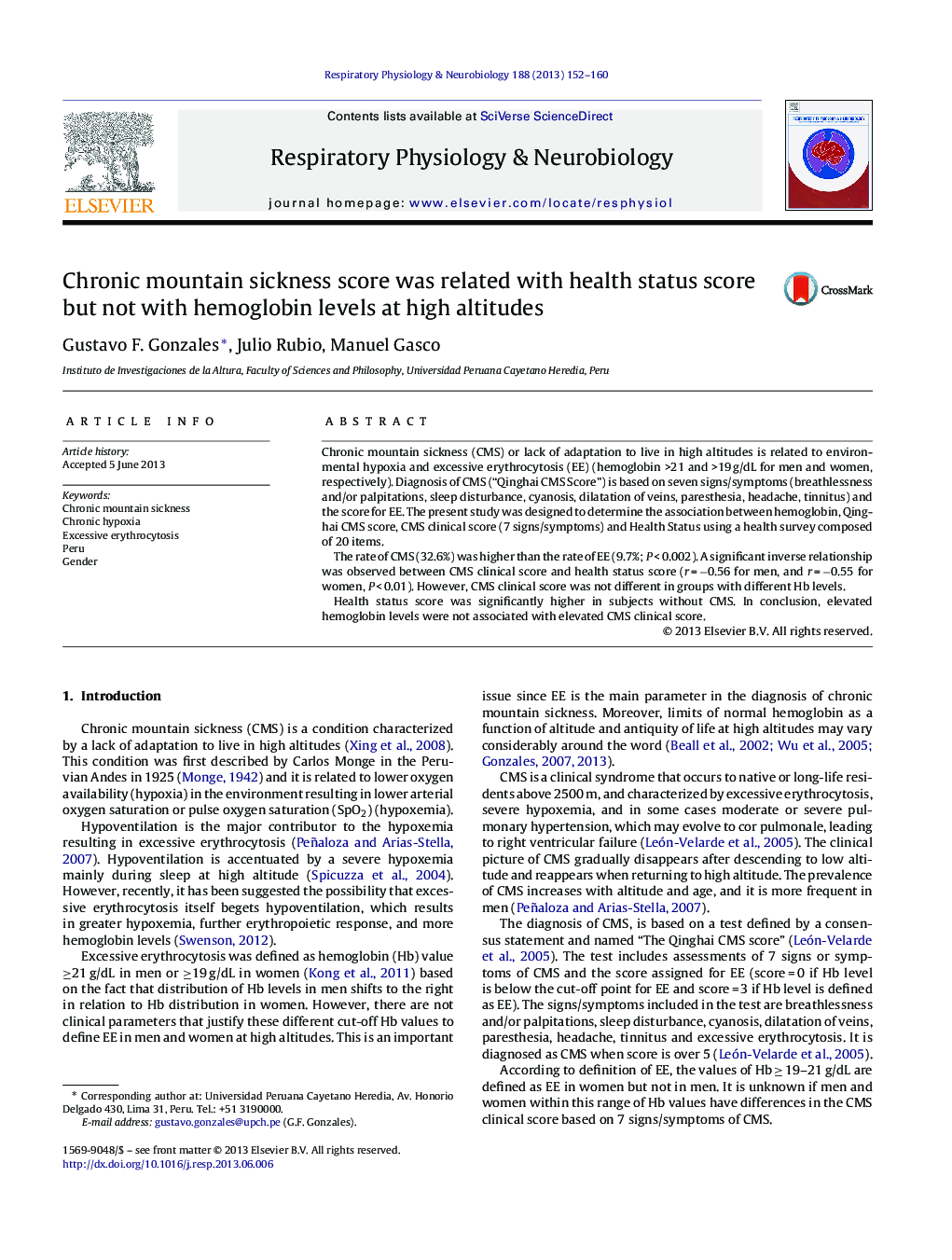| Article ID | Journal | Published Year | Pages | File Type |
|---|---|---|---|---|
| 2847228 | Respiratory Physiology & Neurobiology | 2013 | 9 Pages |
•Chronic mountain sickness score was related with health status score but not with hemoglobin levels at high altitudes.•A significant inverse relationship was observed between chronic mountain sickness clinical score and health status score.•The rate of chronic mountain sickness was higher than the rate of excessive erythrocytosis.
Chronic mountain sickness (CMS) or lack of adaptation to live in high altitudes is related to environmental hypoxia and excessive erythrocytosis (EE) (hemoglobin >21 and >19 g/dL for men and women, respectively). Diagnosis of CMS (“Qinghai CMS Score”) is based on seven signs/symptoms (breathlessness and/or palpitations, sleep disturbance, cyanosis, dilatation of veins, paresthesia, headache, tinnitus) and the score for EE. The present study was designed to determine the association between hemoglobin, Qinghai CMS score, CMS clinical score (7 signs/symptoms) and Health Status using a health survey composed of 20 items.The rate of CMS (32.6%) was higher than the rate of EE (9.7%; P < 0.002). A significant inverse relationship was observed between CMS clinical score and health status score (r = −0.56 for men, and r = −0.55 for women, P < 0.01). However, CMS clinical score was not different in groups with different Hb levels.Health status score was significantly higher in subjects without CMS. In conclusion, elevated hemoglobin levels were not associated with elevated CMS clinical score.
